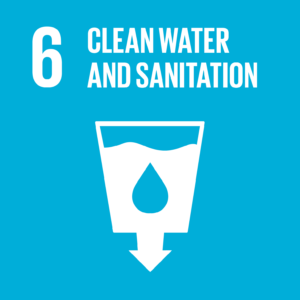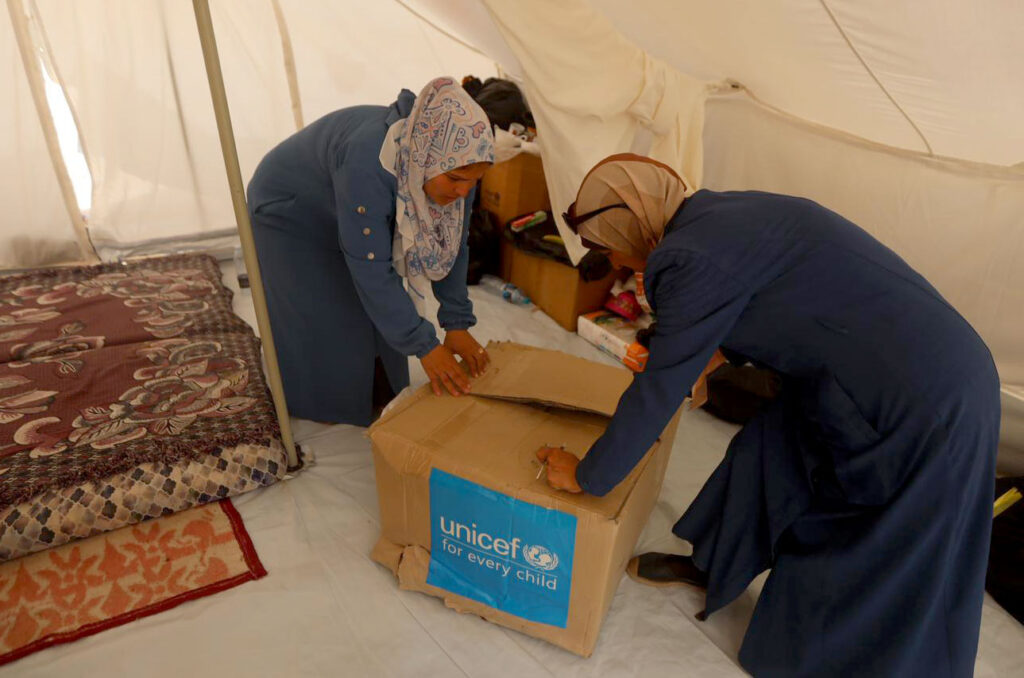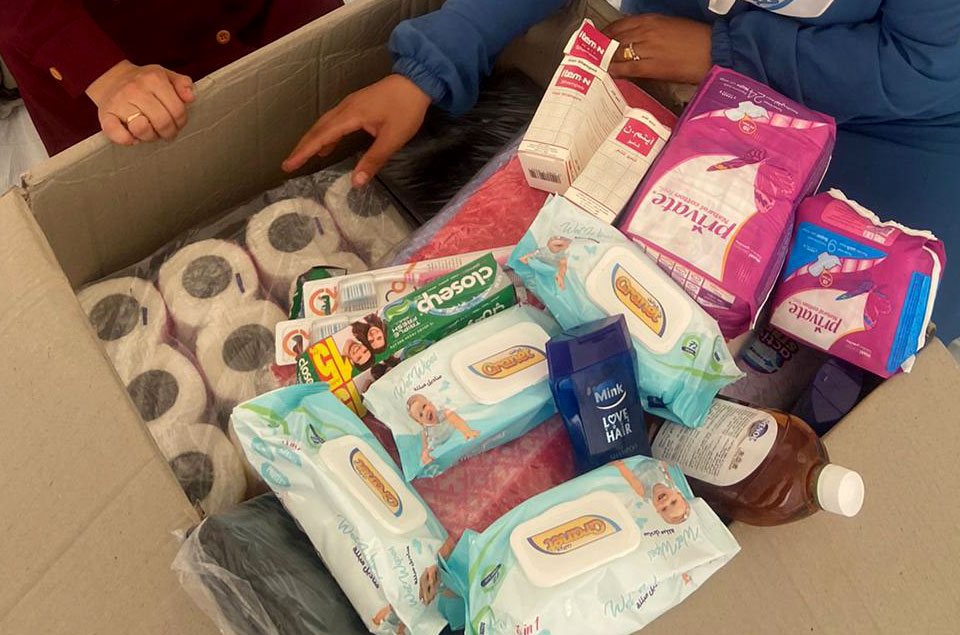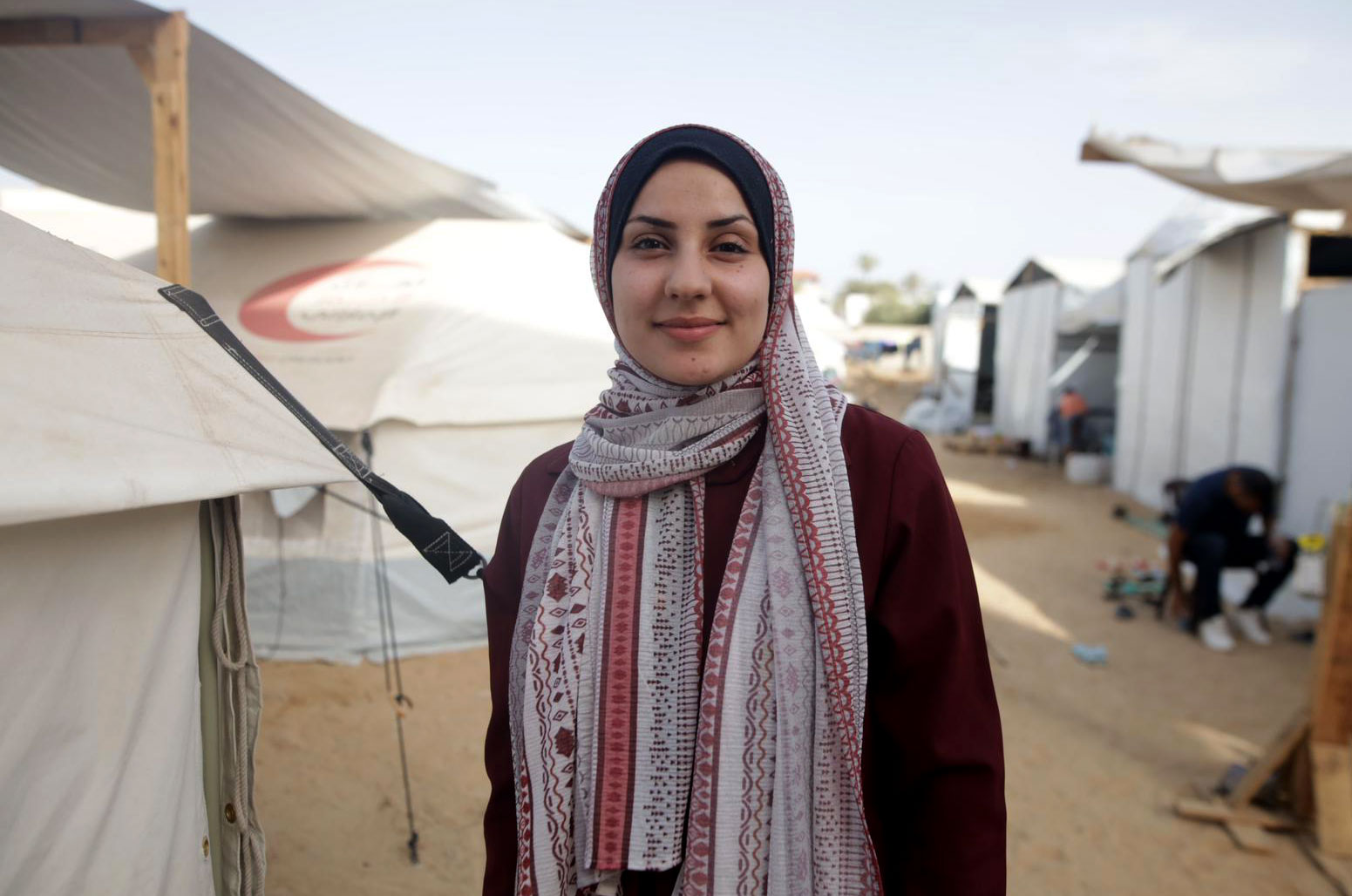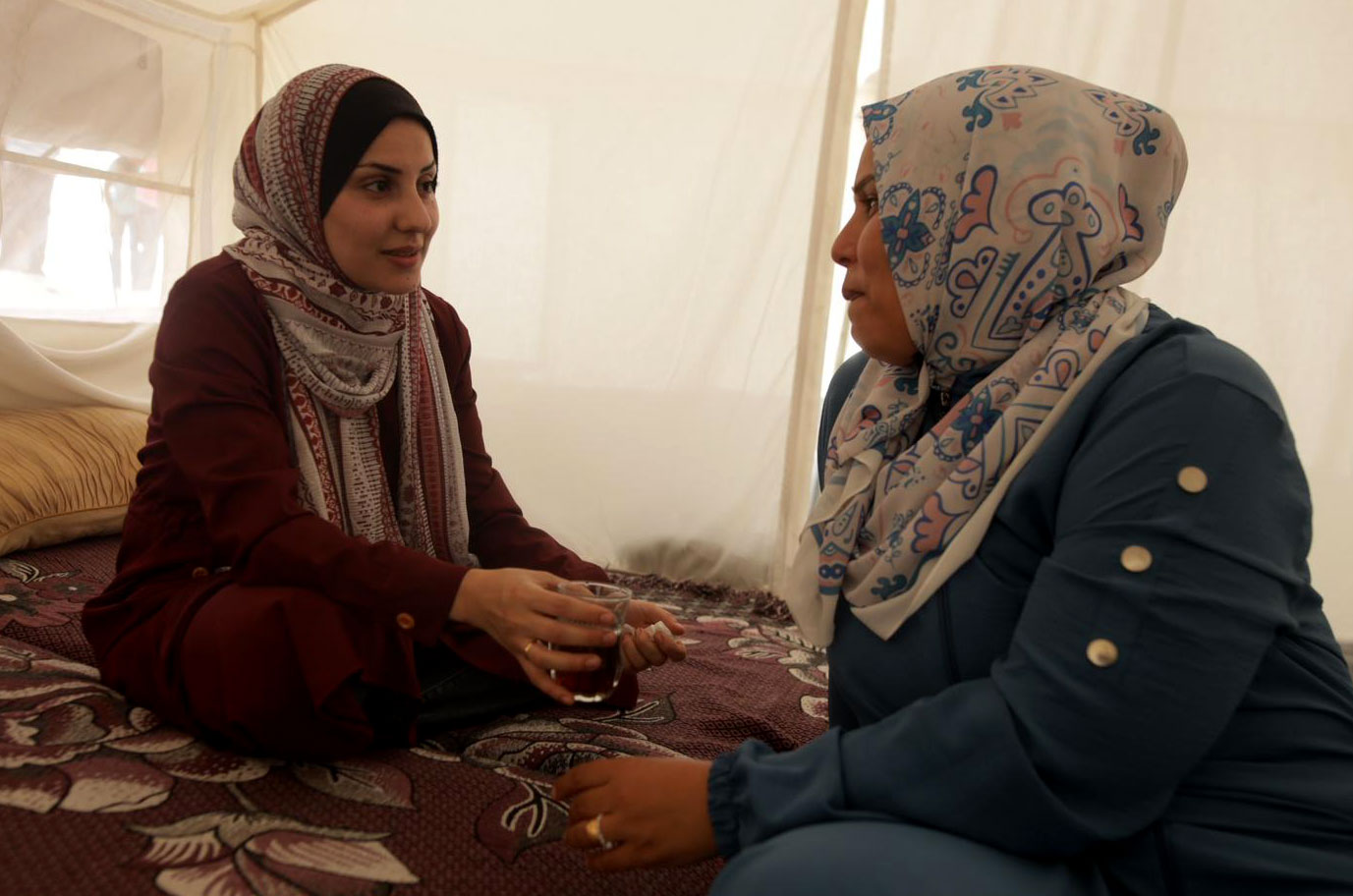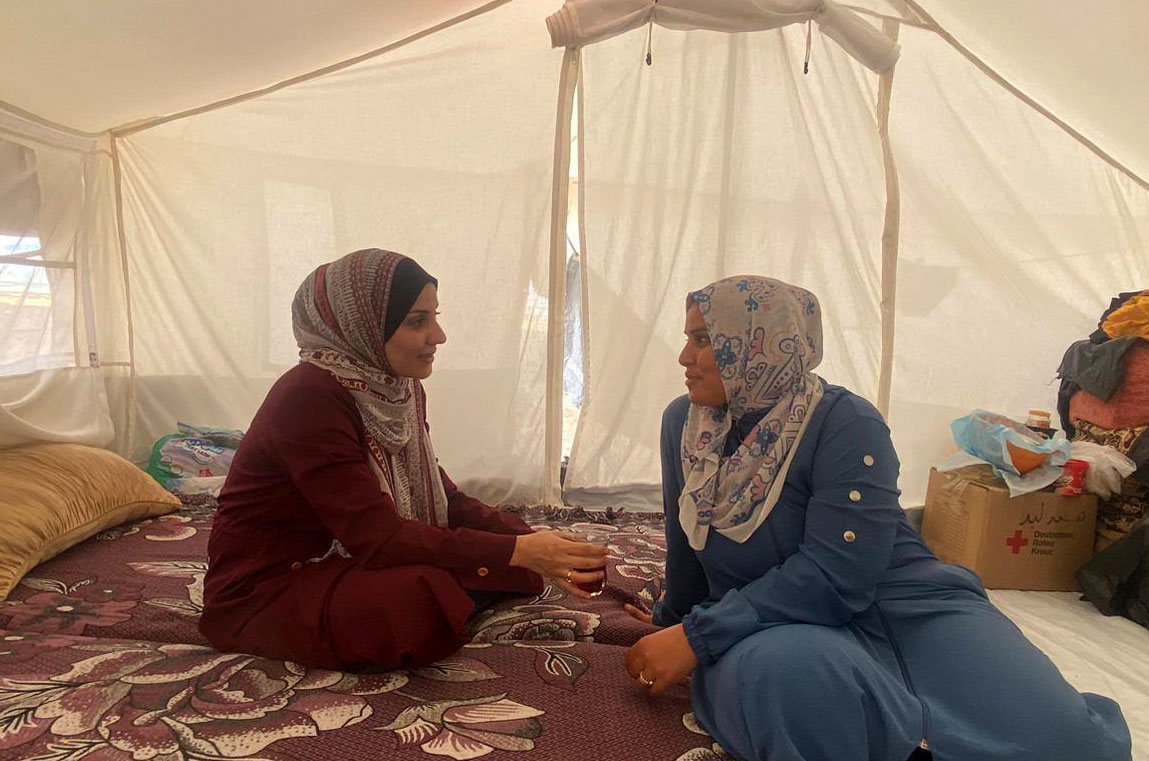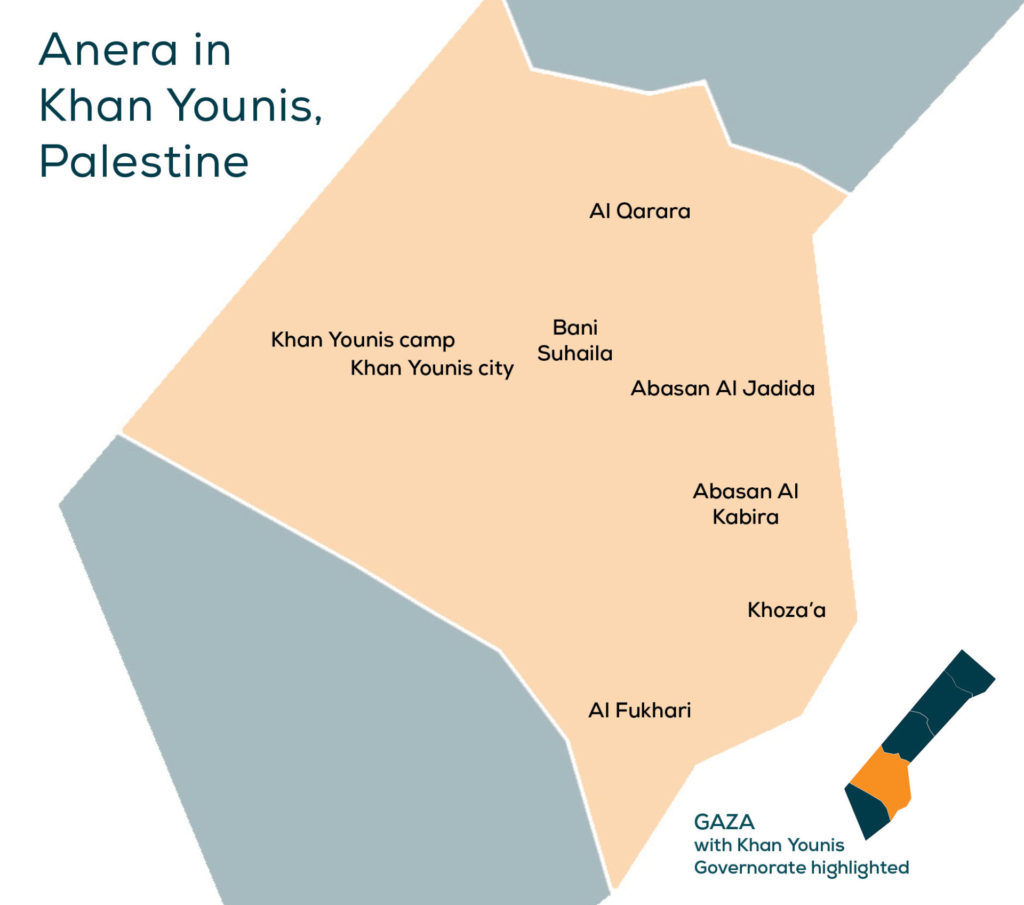Jul, 2024
Menstrual hygiene kits donated by UNICEF provide much needed relief in Gaza
In a modest tent in the Mawasi area of Khan Younis, Enas, 38, lives with her family of seven.
As the war on Gaza stretches on and on, housing infrastructure and living conditions have become catastrophic. “This is our sixth time being displaced,” Enas says with a sigh. “The situation here is difficult and harsh. There is no water, let alone other basics.”
Amidst all the challenges that come with displacement, Enas is most concerned with procuring menstrual hygiene supplies for herself and her 17-year-old daughter. “Our periods bring great suffering for me and for my daughter, who needs care and attention as a teenager,” Enas says.
“I am not exaggerating when I say that these supplies are more important than food.
“There was a period when sanitary pads, tissues and wet wipes disappeared from the markets entirely,” Enas says. “It was the worst time ever. My husband would search all day for sanitary pads for me and my daughter, but come back empty-handed.”


“This is our sixth time being displaced.”
Enas explains what kinds of alternatives she uses when supplies are unavailable. Sometimes, for her and her daughter, she uses pieces of cotton clothing that she cuts up. Other times, she uses tissue paper moistened and dried into a suitable form.
“The options are bad and they make us susceptible to infections,” Enas acknowledges, “but unfortunately, there are often no alternatives.”
When the war began, Enas had recently given birth and was still in her postpartum period.
“It is a luxury to talk about the psychological dimensions during wartime conditions,” Enas recalls, “but those were difficult days.
“I struggled to find sanitary pads and personal care supplies, and. I had severe infections due to the lack of water and the inhumane conditions of displacement.”
Wartime conditions and deprivations can be doubly difficult for women. “During our periods and postpartum, women need rest, relaxation and warm drinks. We crave sweets,” Enas says. “The war has put all of these things out of reach.”
Enas spends her time cooking, tending wood fires, washing laundry by hand and baking bread.
“All of these tasks are hard labor that women must perform daily, even during menstruation when our bodies need rest,” she says.


"My husband would search all day for sanitary pads for me and my daughter, but come back empty-handed.”
Due to the war, the Gaza Strip suffers from a complete collapse of all infrastructure. An indefinite electricity blackout and the absence of water and sanitation services have exacerbated the situation of period poverty.
“We have to walk long distances to find a bathroom and water for personal hygiene,” Enas explains. “I have dreams of having a nice bath or shower!”
“Water is often unavailable, only available in small quantities, or it’s not clean.”
Enas's suffering mirrors that of hundreds of thousands of displaced women in Gaza. The struggle of displacement intersects with the shortage of privacy and menstrual resources women experience.
Since the start of the war, Anera, in partnership with many donors, has provided and distributed personal dignity supplies to a wide segment of displaced women in Rafah, Deir Al Balah and northern Gaza.
Anera’s interventions have focused on providing women with specialized supplies, such as sanitary pads, tissues and baby diapers.
“Without a doubt, these items have brought us great relief. We rejoice in it more than anything else because it relates to our dignity and privacy as women,” Enas says while opening an aid package from UNICEF. “Most women can’t afford these supplies.”


"These items have brought us great relief... it relates to our dignity and privacy as women. Most women can’t afford these supplies.”
Iman, a neighbor of Enas who came to have evening tea, says, “women’s concerns can only be understood by women.”
Iman, 29, is a pharmacist and mother of two. She often provides medical consultations to displaced women around her. According to Iman, the shortage of menstrual supplies severely impacts women’s reproductive health.
“I’ve met many women who have begun to suffer from serious infections due to the lack of personal hygiene products, sanitary pads and clean water,” she says. “There are women who resort to using one pad throughout the day without replacing it due to the lack of availability, and this causes many health problems.”
Iman also highlights how difficult it is to obtain painkillers for stomach and menstrual pain, especially for teenagers. “I always receive calls from women and friends asking about these pills, but they aren’t available – which means women have to suffer through the menstrual pain,” she says.
"Living in constant fear and tension from bombing and being displaced really messes with women's menstrual cycles and hormones, causing even more health problems. With the added stress of displacement, like carrying firewood, maintaining the fire, and washing laundry by hand, some women end up having heavy and frequent periods, sometimes twice a month. This is a sign of hormonal imbalance," Iman says.


“I’ve met many women who have begun to suffer from serious infections due to the lack of personal hygiene products, sanitary pads and clean water.”
Iman, herself a displaced woman, echoes Enas' call for increased support for the needs of displaced women in Gaza.
“These aid packages must continue throughout the war to provide relief for displaced women and their families. The situation has been nearly a year, and menstruation is a regular part of women's lives worldwide,” Iman stresses.
“We thank everyone who acknowledges our suffering and hope to return to our normal and dignified lives as soon as possible.”


